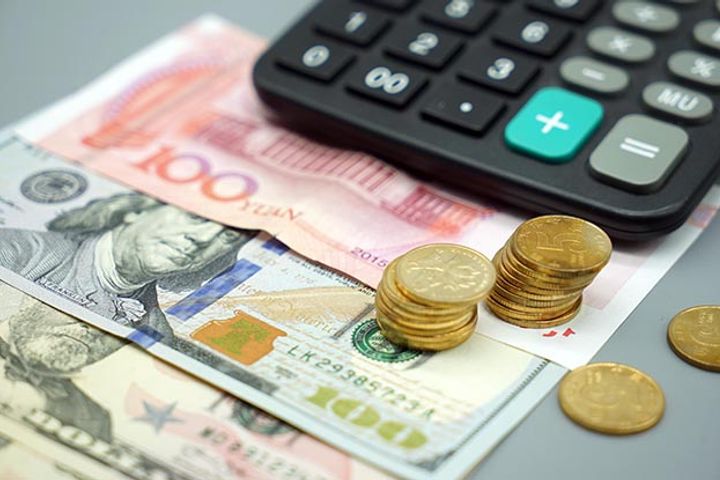 Yuan's Depreciation Is Inevitable But Market Will Remain Stable, Insiders Say
Yuan's Depreciation Is Inevitable But Market Will Remain Stable, Insiders Say(Yicai Global) Aug. 7 -- The yuan's depreciation is inevitable given the strength of the dollar and discrepancies between the Chinese and American interest rates, but the market is still relatively stable, according to insiders.
The People's Bank of China set the yuan's central parity rate versus the dollar at 6.8513 yesterday, down 191 points from a day earlier to give the weakest figure since June. The central bank sets the rate on the morning of each business day, and spot rates may deviate 2 percent above or below the figure.
Spot trading in the offshore redback, which is not governed by PBOC, softened to as much as 6.89 against the dollar on Aug. 3, a more than 14 month low.
"We can see a relatively balanced exchange settlement and sales of enterprises at home and abroad," Charles Feng, managing director of Greater China macro trading at Standard Chartered Hong Kong, told Yicai Global. "In the offshore market, hedge funds tended to short the yuan, but it is quite tame compared with similar moves in 2015 and 2016."
Rising Volatility
Since June, the offshore yuan's volatility has reached around 6.35 percent, which is higher than normal but still low compared with 10 percent swings in 2015, several traders at foreign banks told Yicai Global.
The daily trading volume is also much smaller than back then, at around CNY20 billion (USD2.9 billion) to CNY30 billion onshore and CNY15 billion to CNY20 billion offshore, about 20 percent more than the first quarter, they added.
Hedge funds are bearish on the yuan right now, but their position is smaller than it was in 2015 and 2016 -- they are being much more conservative so probably do not expect a major depreciation, Feng said.
As well as battling a strong dollar, the yuan is depreciating because Hong Kong-listed Chinese banks pay stock dividends in July and August, bumping up forex demand by tens of billions of dollars.
Stock Markets Are Key
Funds flowing into the stock markets will be a key stabilizer for the yuan going forward, insiders from several institutions agreed. There will be huge potential for a rise, as the foreign investment only makes up about 2 percent of China's mainland stock and bond markets, they added.
China's mainland shares joined the MSCI Emerging Markets Index on May 31 with an inclusion factor of about 5 percent. Fang Xinghai, vice chairman of the China securities regulator at the time, hopes to lift that to around 15 percent.
Bloomberg also announced earlier this year that it would include yuan-denominated government and policy bank securities to the Bloomberg Barclays Global Aggregate Index. The addition will be phased in over 20 months starting from April 2019. JPMorgan is also in talks with investors as it looks to include Chinese government bonds into its emerging market bond index, and will publicize its results next September.
"Foreign investment contributes to less than 2 percent of China's onshore bond market," said Huang Jiacheng, a Chinese bond fund manager at Fidelity International.
"The bonds' inclusion in those indexes would gradually boost capital flow into China," he added, saying that a more in-depth understanding of the country's bond market will become critical as it moves into more and more international indexes.
Based on Feng's estimations, passive fund inflows for mainland financial products could reach USD13 billion a month by 2020 as they continue to join those indexes.
Attracting foreign capital requires stronger infrastructure and a more transparent, trustworthy market, he added, saying that China should continue to open up its financial sector and not be put off by short-term market fluctuations.